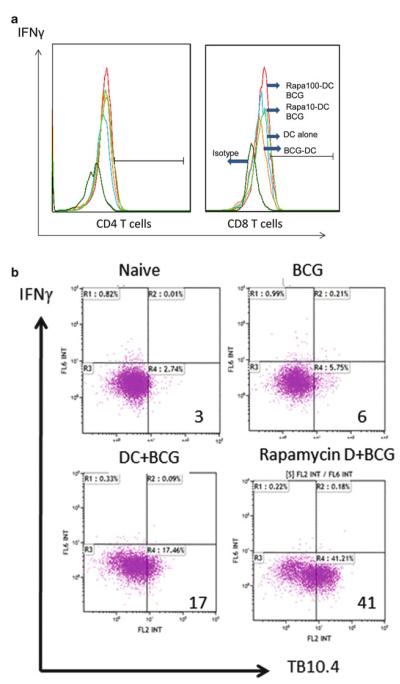Fig. 1.
Rapamycin treatment of dendritic cells with BCG vaccine accelerates the Th1 response in mice. C57Bl/6 mouse bone marrow-derived dendritic cells (DCs) were treated with either 10 or 100 μg of rapamycin followed by infection with Mycobacterium bovis Bacillus Calmette Guerin (BCG) bacteria for 4 h and washed. Five mice per group were injected i.p. with, 2 × 106 DCs per mouse per group as follows: (1) rapamycin-activated and BCG-infected DCs (10 or 100 μg doses), (2) untreated DCs infected with BCG, and (3) naïve DCs. An untreated group was an additional control. (a) Seven days after injection, splenic T cells were typed for CD4 and CD8 T cells secreting IFNγ after restimulation with antigen 85B, a major antigen of BCG vaccine. Flow cytometric analysis shows increased expression of IFNγ-secreting CD4 and CD8 T cells in mice given rapamycin-activated DCs containing BCG. (b) Mice were immunized as in panel (a). Two weeks later, the spleen-derived T cells were stained using a tetramer specific for BCG TB10.4 antigen (NIH Tetramer facility Emory Vaccine Center, USA). Rapamycin-activated, BCG-infected DCs induce a stronger expansion of tetramer-specific CD8 T cells compared to BCG-infected DCs alone.

